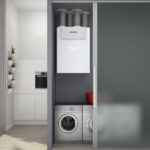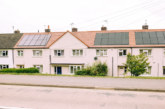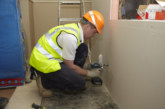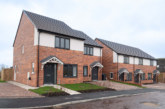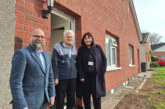The technology used during the housebuilding process is constantly evolving. Innovation in building materials, such as insulation and weather stripping, has led to a marked improvement in the heat retention and the hermetic integrity of residential developments says Mark McManus.
This has naturally led to higher standards across the sector, including in renovated and new-build social housing. These technological advancements are certainly welcome, as sustainability rises up the agenda of the property sector and climate change becomes an increasingly acute issue. However, increasingly airtight homes create their own challenges and opportunities, particularly in effectively ventilating them while maintaining environmental performance.
UK Building Regulations call for one air change every two hours — meaning that finding the correct ventilation system is vital to ensuring compliance. Voluntary regulations take this requirement a step further with increasingly popular standards like Passivhaus demanding that mechanical ventilation systems with heat recovery (MVHR) are specified to attain accreditation. This increasing reliance on MVHR offers opportunities for housing associations and local authorities to further improve new-build social housing.
Home comforts
The technology behind modern MVHR systems has now reached a point of maturity where it can enhance the comfort of residents itself. Rather than simply recycling air from the outside of a building for use internally, MVHR systems now filter and actively improve the air quality of a home during the process of ventilation. This minimises resident’s exposure to potentially harmful pollutants like carbon dioxide and nitrogen dioxide.
This capability extends as far as allowing residents to tailor the air in their home. A particularly timely development as smart home technology continues to raise expectations for customisable home environments. Heat recovery also has implications for energy bills with fully automatic ventilation units adjusting the supply of fresh air according to the current humidity level. Meaning that maximum efficiency is achieved in all conditions.
Another significant benefit is the ability to install units in densely packed urban developments with minimal disruption and without noise pollution. For example, Stiebel Eltron LWZ MVHR units operate below recommended decibel limits, meaning they provide seamless operation that occupants can set and forget about. These advantages are key, particularly at a time in which housebuilding in high-density areas is increasing exponentially, and the housing crisis demands that the maximum number of homes are delivered.
Improving energy efficiency
The Government’s Clean Growth Strategy is currently working towards a target of getting all social housing stock in the UK up to Energy Performance Certificate (EPC) Band C by 2030. MVHR has a key role to play in achieving this goal. Heat recovery technology means up to 90% of the heat that is otherwise lost when ventilating is reused, minimising energy loss. This is further supplemented by recent improvements in the performance of heat exchangers. This has allowed units to recover up to 90% of the thermal energy in extract air, placing them at an A rating on the EU ErP energy standards.
In addition to these benefits, many products such as the LWZ are also now on the SAP Product Characteristic Database. This assists with the installation and the design process, as the SAP Product Characteristic Database provides accurate modelling statistics that provide insight into the carbon dioxide savings associated with the unit. This means housing associations and local authorities have a clear view of the energy they could save before specifying the system and can accurately predict the environmental impact of a new scheme. There is also the opportunity to combine MVHR systems with heat pumps to create a totally integrated renewable system.
Ventilation integrated with heat recovery forms a key element of building a sustainable future for the UK’s social housing stock that works for residents. It offers the opportunity to improve the sustainable credentials of new-build and existing social housing stock and will be of vital importance as these homes become more airtight and energy-efficient.
Mark McManus is Managing Director at Stiebel Eltron UK

